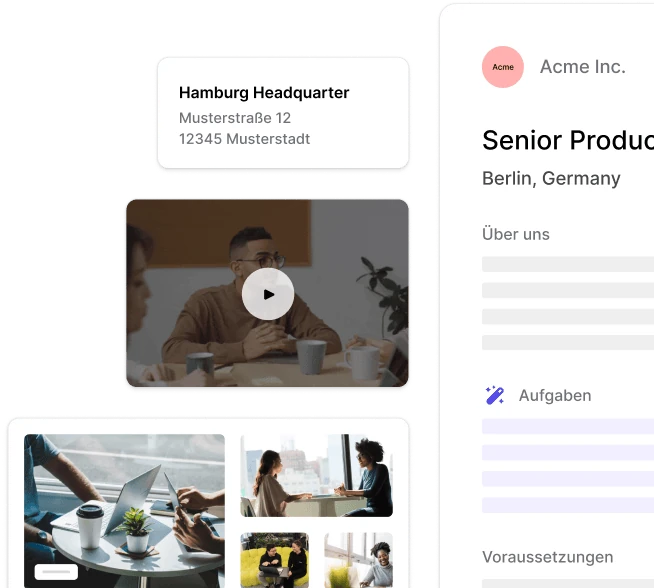Glossary: HR & Recruiting Definitions
What is mid-level experience?
Mid-level jobs are roles that require some level of experience to complete. They are a step up from entry-level positions and sit below senior-level positions. They will usually require some sort of management over entry-level employees.
Table of contents
Mid-level definition
Mid-level jobs are often the next step for employees after performing an entry-level role. They will usually have higher salaries and more responsibilities than entry-level positions. They will often also follow a chronological step on the career ladder. For example, an Administrative Coordinator may become an Office Manager.
How much experience is needed for a mid-level position differs by industry, and even by role, but is generally anywhere between two and eight years.

Mid-level vs mid-senior level
Mid-level roles cover such a huge period of time during an employee’s career and will see a huge development in skills. Because of this, mid-level positions can sometimes be split into mid-level and mid-senior level roles.
In these cases, mid-level experience in years may be defined as around two to five years, while the mid-senior level would be around five to eight years. For example:
- Manual Tester – Entry-level role
- Automation Tester – Mid-level role
- Test Analyst – Mid-senior level role
Here, the level of mid-level management an employee will be required to take on will differ too, with mid-senior levels expected to assist with managing mid-level employees.
Deciding whether the position is mid-level or mid-senior level
A number of points can help to decide whether a role is mid-level or mid-senior level, as detailed below:
- What roles will the person be managing? If they are only managing entry-level roles, the position may be mid-level
- What skill-level is expected from the employee? If an expert-level of skill is needed, with little room for development, then a mid-senior title may suit the role best
- How many years of experience is expected? Over five years would indicate a mid-senior level position
- Who will be their direct lead? If their line manager is a senior or above, they will likely be a mid-senior
Examples of mid-level positions
Reading through some example mid-level positions can further increase understanding of this role’s level, and what skills and responsibilities are expected of a mid-level position.
Examples of Mid-Level roles include:
Free recruiting software that helps you hire faster
Find out for yourself how we help you attract, screen, and manage the best talent to grow your team.
Get started for freeRelated terms


